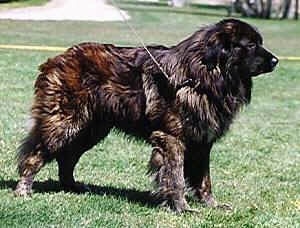
Photo courtesy of Akaroa's
Es-tre-la moun-tn dawg
There are two coat types: Long and short. Long coat: Outer coat thick and slightly coarse without being too harsh. Lying close over the body, flat or slightly waved, never curly. Undercoat very dense and normally lighter in color than the outer coat. Short and smooth hair on head diminishing in length from base of ears to tip. Thick and abundant around the neck and chest forming a ruff, particularly in the male. Forearms, thighs, rear pasterns and tail abundantly feathered. Short, smooth hair on front of legs. A woolly or fluffy coat undesirable. Short coat: Short, thick and slightly coarse, without being too harsh, with a shorter, dense undercoat. Any feathering should be in proportion. Colors include Fawn: which varies from burnt yellow through reddish gold to a deep red. With or without guard hairs. The fawn should never be so pale as to be a dirty white. Brindle: any of the previous permitted colors with the addition of streaks or smudges of black or brown varying in intensity. Wolf Grey: a mixture of grey and black hairs intermingled, with or without guard hairs. Black muzzle or mask highly desirable. White markings on chest, underside, feet or tail are tolerated but undesirable. The tail is set slightly low, reaching to the hock And forming a distinctive, rigid hook at the tip. Well-furnished and feathered, carried low. On the move may be carried slightly higher than the level of the back. The feet are oval with thick, hard pads and tightly closed toes. Abundant hair between pads. Dark, or preferably black, nails. It has moderate angulation. Thighs well-muscled. Hocks moderately well let-down. Rear pasterns are vertical. The back is preferably short, slightly higher at withers and almost level. Short coupled, broad, well-muscled loin. Slightly sloping croup. Chest moderately deep and broad. Ribs well sprung. Underline very gently rising. The head is long and powerful with broad, slightly rounded skull. Moderate stop set halfway between nose and slightly defined occiput. Muzzle moderately tapered. Topline of muzzle almost straight, with slightly aquiline nose. A narrow head and pointed muzzle undesirable. Large black nose with well-opened nostrils. Jaws well developed. Lips black, tightly closed and not pendulous. Roof of mouth black. The eyes are neither deep nor prominent, of medium size, oval in shape with calm and intelligent expression, preferably amber or darker. Black-rimmed eyelids closing well, with rather prominent eyebrows. The ears are small in relation to body, thin, triangular, rounded at tips. Moderately high set. Rose ear folding backwards, with inner edge apparent, carried close to skull. Teeth are very strong. Jaw strong with perfect, regular and complete scissor bite, i.e. upper teeth closely overlapping lower teeth and set square to the jaws. The neck is short, muscular and well set. A hard, thick tuft of hair under throat. Dewlap undesirable. The forelegs are straight, well-muscled and with strong, round bone. Moderately sloping shoulders and upper arms. Short pasterns which appear nearly vertical when viewed from the side. Note: the plural of Cao da Serra da Estrela is Cães da Serra da Estrela.
Loyal, affectionate to owners, aloof to others. Intelligent and alert. Self-willed yet trainable. The Estrela is Portuguese and was bred to fight wolves to protect sheep. They are very defensive of their territory. They should be well socialized, preferably when young with both dogs and people, especially with children, as the breed tends to be naturally wary of strangers, though they are very friendly with those they know. In order to successfully keep an Estrela Mountain Dog, the family must achieve pack leader status. It is a natural instinct for a dog to have an order in their pack. When we humans live with dogs, we become their pack. The entire pack cooperates under a single leader; lines are clearly defined and rules are set. Because a dog communicates his displeasure with growling and eventually biting, all other humans MUST be higher up in the order than the dog. The humans must be the ones making the decisions, not the dogs. That is the only way your relationship with your dog can be a complete success.
Height: 25 - 29 inches (63 - 73 cm)
Weight: 77 - 132 pounds (35 - 60 kg)
--
Estrela Mountain Dogs are not recommended for apartment life. They need space and will do best with at least a large yard. Because their thick coat protects them so well, they can happily cope with living outdoors provided they have proper shelter.
This breed of dog is best suited to a family with lots of space surrounding the home where it can safely run free in an open area. They should be taken for a daily, long walk.
About 10 to 12 years
About 6 to 8 puppies
Weekly brushing is needed. The ears must be kept clean and the teeth cleaned when needed. Bathe only when necessary. Some de-matting is required to avoid hotspots. Wetness and damp/wet weather conditions are responsible for the hot spots. Check behind ears, feathering on legs and tail for mats. The Estrela Mountain Dog is a seasonally heavy shedder; during this time the dog should be brushed and combed daily.
The Estrela Mountain Dog was recorded in the AKC's Foundation Stock Service in 2004.
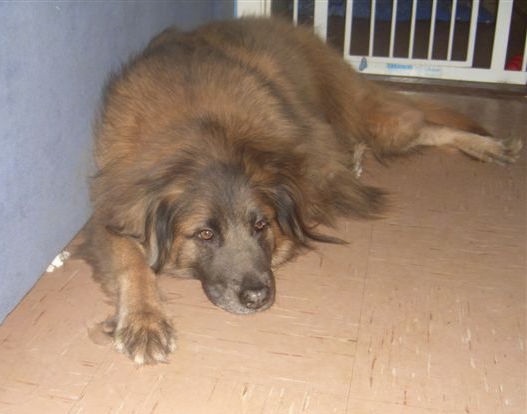
"This is Rio. She is 8-9 years old and an Estrela Mountain Dog. I adopted her through the breed rescue here in the UK three years ago."
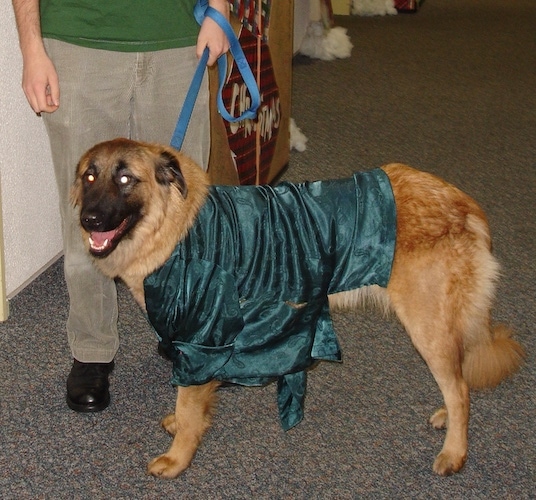
Maria Carlotta the Estrela Mountain Dog at 15 months old all dressed up
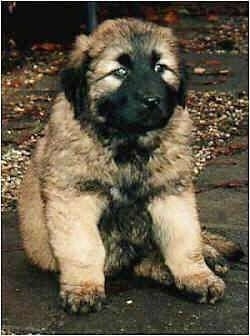
Puppy, photo courtesy of Akaroa's
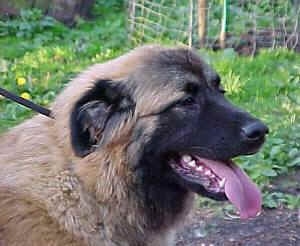
Photo courtesy of Akaroa's
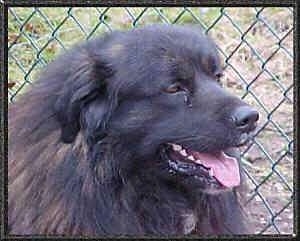
Photo courtesy of Akaroa's
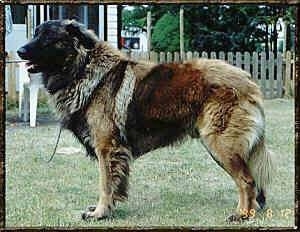
Photo courtesy of Akaroa's
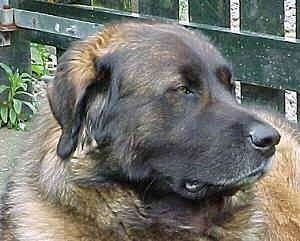
Photo courtesy of Akaroa's
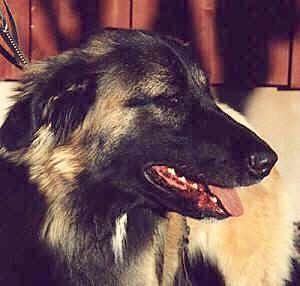
Photo courtesy of Akaroa's
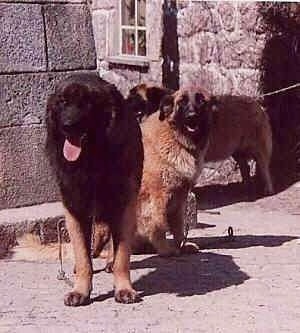
Photo courtesy of Akaroa's
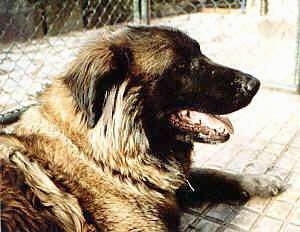
Photo courtesy of Akaroa's